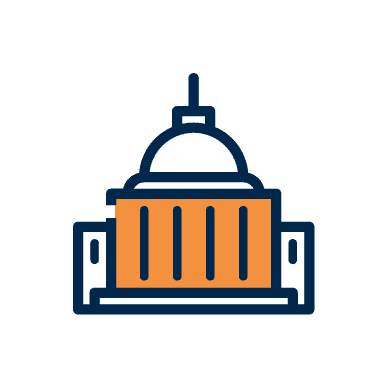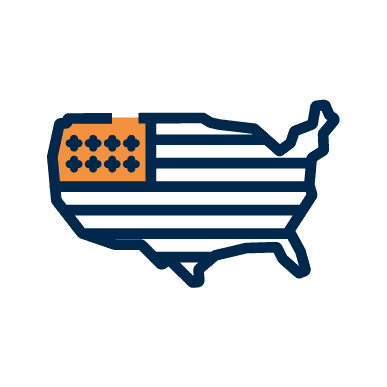On December 2, 2021, the Office of Inspector General (OIG) of the Department of Health and Human Services (HHS) issued its Semiannual Report to Congress for fiscal year 2021 (Report). The Report describes OIG’s work identifying significant risks, problems, abuses, deficiencies, remedies, and investigative outcomes relating to the administration of HHS programs and operations during the reporting period of April 1, 2021, through September 30, 2021. Below is an overview of the OIG’s outcomes for the entire fiscal year of 2021.
| Statistic | FY 2021 (10/1/2020––9/30/2021) |
| Audit Reports Issued | 162 |
| Evaluations Issued | 46 |
| Expected Audit Recoveries | $787.29M |
| Questioned Costs | $1.17B |
| Potential Savings | $1.24B |
| New Audit and Evaluation Recommendations | 506 |
| Recommendations Implemented by HHS OpDivs | 432 |
| Expected Investigative Recoveries | $3.00B |
| Criminal Actions | 532 |
| Civil Actions | 689 |
| Exclusions | 1,689 |
The purpose of this article is to review the Report with particular emphasis on OIG efforts to address the impact of COVID-19 as well as exclusions, debarments, provider self-disclosures, monetary penalties (CMP) and other enforcement actions, during the second half of fiscal year 2021.
The Ongoing Impact of COVID-19 on OIG Activities
Consistent with the Spring 2021 Semiannual Report, the impact of the pandemic on the OIG’s focus remains evident during this reporting period. Safeguarding public health during the pandemic was also listed first among the top six challenges for HHS in the most recent OIG report on top challenges for the agency.
OIG continues to advance the four goals that drive OIG’s strategic planning and mission execution with respect to HHS’s COVID-19 response and recovery. These goals are: (1) to protect people, (2) to protect funds, (3) to protect infrastructure, and (4) to promote
effectiveness of HHS programs. To further these goals in fiscal year 2021, the OIG conducted more than 50 audits and evaluations assessing a wide range of urgent issues—from health disparities to vaccine administration to nursing home oversight and preparedness, along with law enforcement efforts, data analytics, and issuance of fraud alerts and other guidance.
During this reporting period, OIG focused on protecting the health, safety, and welfare of beneficiaries receiving care in nursing homes, hospitals, and other facilities, which have been particularly affected by the COVID-19 pandemic. For example, the OIG issued a report that illuminated the devastating impact of the pandemic on nursing homes, where almost 1,000 more beneficiaries died per day in April 2020 than in April 2019, and the overall mortality rate increased from 17 percent in 2019 to 22 percent in 2020.
OIG investigated pandemic-related schemes to fraudulently bill Medicare for medically unnecessary testing and medical equipment. OIG, along with our law enforcement partners, participated in a coordinated Federal law enforcement action to combat health care fraud nationwide. These targeted efforts resulted in criminal charges against 138 defendants, including more than 42 doctors, nurses, and other licensed medical professionals, for over $1.4 billion in alleged losses.
OIG Investigations
OIG investigates allegations of fraud, waste, and abuse in all HHS programs with the largest body of work related to the Medicare and Medicaid programs. OIG also conducts investigations regarding organized criminal activity, including medical identity theft and fraudulent medical schemes established for the sole purpose of stealing Medicare dollars.
One of the most common types of fraud perpetrated against Medicare, Medicaid, and other Federal health care programs involves filing false claims for reimbursement. False claims may be pursued under Federal and State criminal statutes and, when appropriate, under the False Claims Act. Depending on the types of fraud or other violations involved, OIG investigations may culminate in criminal or civil court judgments and decisions, administrative sanctions and decisions, and/or negotiated settlement agreements. The outcome of such investigations can range from fines to incarceration.
During this semiannual reporting period, the OIG reported 291 criminal and 408 civil actions against individuals or entities that engaged in offenses related to health care. The office also reported over $1.20 billion in investigative receivables due to HHS and more than $406.0 million in non-HHS investigative receivables, including civil and administrative settlements or civil judgments related to Medicare, Medicaid, and other Federal, State, and private health care programs.
Sanctions and Other Administrative Actions
Various Federal laws provide authorities the ability to impose administrative sanctions for fraud and abuse as well as other activities that pose a risk to Federal health care programs and their beneficiaries. Sanctions include: the exclusion of individuals and entities from Federal health care programs; debarment or suspension from government contracting; and the imposition of Civil Monetary Penalties (CMPs) for submitting false and fraudulent claims to a Federal health care program or for violating certain federal health care statutes such as the anti-kickback statute, Stark, or the Emergency Medical Treatment and Labor Act (EMTALA).
During this semiannual reporting period, OIG imposed 737 administrative sanctions in the form of program exclusions or administrative actions for alleged fraud or abuse or other activities that posed a risk to Federal health care programs and their beneficiaries.
Program Exclusions
The Social Security Act, § 1128 (42 U.S.C. § 1320a-7), provides several grounds for excluding individuals and entities from participation in Medicare, Medicaid, and other Federal health care programs. Exclusions are mandatory for individuals and entities convicted of the following types of criminal offenses: (1) Medicare or Medicaid fraud; (2) patient abuse or neglect; (3) felonies for other health care fraud; and (4) felonies for illegal manufacture, distribution, prescription, or dispensing of controlled substances.
OIG is authorized to issue a permissive exclusion against individuals and entities on several other grounds, including misdemeanors for other health care fraud (other than Medicare or Medicaid); suspension or revocation of a license to provide health care for reasons bearing on professional competence, professional performance or financial integrity; provision of unnecessary or substandard services; submission of false or fraudulent claims to a Federal health care program; or engaging in unlawful kickback arrangements.
The type and length of exclusion is determined by the underlying facts of each case. During this reporting period, the OIG excluded 654 individuals and entities from Medicare, Medicaid and other Federal health care programs. Most of the exclusions resulted from convictions for crimes relating to Medicare or Medicaid, patient abuse or neglect, financial misconduct, controlled substances, or as a result of license revocation.
The vast majority of Medicaid exclusions start with actions at the state level by Medicaid fraud control units, professional associations and state attorneys general. To support the work of state Medicaid fraud control units (MFCUs), OIG completed the deployment of a new service for MFCUs to report convictions through a central web-based portal for exclusions. For a list of excluded individuals and entities, see https://exclusions.oig.hhs.gov/.
Contract Suspensions and Debarments
Contract suspensions and debarments are administrative tools used by HHS and other Federal agencies to protect the government from individuals and entities that have engaged in contract fraud or have misused funds. An individual or entity that has been suspended or debarred by HHS or any other agency is ineligible to participate in any future federal funding opportunities for a specified period of time
Civil Monetary Penalties Law
The CMPL, found at Section 1128A of the Social Security Act (42 U.S.C. § 1320a-7a), authorizes the OIG to impose administrative penalties, assessments, and exclusions against a person who, among other things, submits, or causes to be submitted, claims to a Federal health care program that the person knows, or should know, are false or fraudulent. For example, a person who submits, or causes to be submitted, to a Federal health care program a claim for items and services that the person knows, or should know, is false or fraudulent is subject to a penalty of up to $20,000 for each item or service falsely or fraudulently claimed, an assessment of up to three times the amount falsely or fraudulently claimed, and exclusion. The exclusions statute also authorizes OIG to exclude a person who violates the CMPL. During this reporting period, OIG concluded cases involving more than $44.2 million in CMPs and assessments.
Additional Enforcement Programs
In addition to the direct actions taken by the OIG to address bad behavior there are also programs available to health care providers that can mitigate the outcomes for certain individuals and entities.
Self-Disclosure Programs
Health care providers, suppliers, or other individuals or entities subject to CMPs can apply for acceptance into the Provider Self-Disclosure Protocol, a program created in 1998 for voluntary disclosure of self-discovered evidence of potential fraud. During this semiannual reporting period, provider self-disclosure cases resulted in more than $41.2 million in HHS receivables.
The Self-Disclosure Protocol may give providers the opportunity to avoid or reduce the costs or disruptions associated with Government-directed investigations and civil or administrative litigation. The self-disclosure guidelines are available on the OIG website at https://oig.hhs.gov/compliance/self-disclosure- info/index.asp.
Application processes for two additional self-disclosure programs were recently added to the OIG website for HHS contractors and grantees:
- The OIG self-disclosure program provides federal contractors with the opportunity to self-disclose when they have potentially violated the False Claims Act or other Federal criminal laws prohibiting fraud, conflict of interest, bribery, or gratuity. This self-disclosure process is only available to those with a Federal Acquisition Regulations (FAR)-based contract with HHS.
- The OIG Grant Self-Disclosure Program is available for application by HHS grantees or HHS grant subrecipients and provides the opportunity for voluntary disclosure to OIG of potential fraud. OIG evaluates the reported results of each internal investigation under the provider self-disclosure protocol to determine the appropriate course of action.
Corporate Integrity Agreements
Many health care providers seek to settle their cases before litigation with the OIG. As part of the settlements, providers often agree to enter into corporate integrity agreements (CIAs) with the OIG to avoid exclusions from Medicare, Medicaid, and other Federal health care programs. Under a CIA, a provider commits to establishing a compliance program and taking other specified steps to ensure future compliance with Medicare and Medicaid rules. The compliance programs are designed, in part, to prevent future fraud. OIG monitors providers’ compliance with these agreements over a period of years and may impose penalties on parties that fail to comply with the requirements of their CIAs. Surprisingly, there have been cases where health care entities chose to accept fines rather than take the steps needed to comply with OIG directives or to enter into an CIA when offered by the OIG.
Conclusion
Over the last two years, the volume of OIG oversight required has grown due to the introduction of COVID-19 as a new line item for HHS. Notwithstanding the required pivot to oversee HHS pandemic-related activities under often difficult working conditions, the number of OIG administrative and enforcement actions from 2019 to 2021 has remained relatively constant, as shown by the fiscal year-end comparison of OIG statistics below. As March 2022 looms ahead, the OIG faces the beginning of potentially a third year of COVID as part of its “new normal”.
| Statistic | FY 2019 | FY 2020 | FY 2021 |
| Audit Reports Issued | 163 | 178 | 162 |
| Evaluations Issued | 46 | 44 | 46 |
| Expected Audit Recoveries | $819.15M | $942.06M | $787.29M |
| Questioned Costs | $913.47M | $733.93M | $1.17B |
| Potential Savings | $836.42M | $2.89B | $1.24B |
| New Audit and Evaluation Recommendations | 582 | 689 | 506 |
| Recommendations Implemented by OpDivs | 341 | 286 | 432 |
| Expected Investigative Recoveries | $5.04B | $3.14B | $3.0B |
| Criminal Actions | 809 | 624 | 532 |
| Civil Actions | 695 | 791 | 689 |
| Exclusions | 2,640 | 2,148 | 1,689 |



































